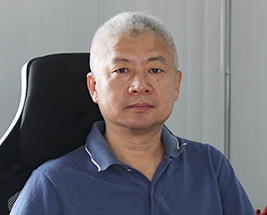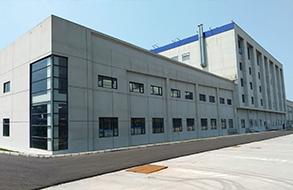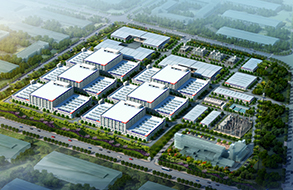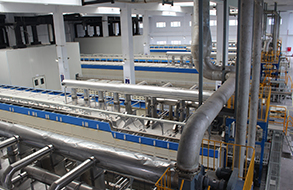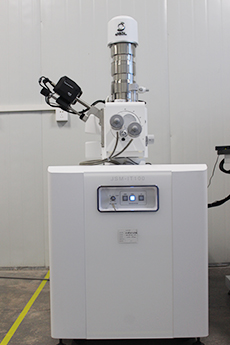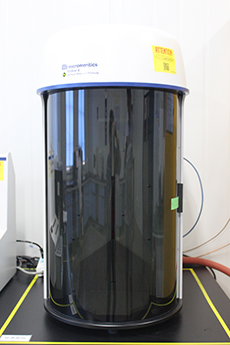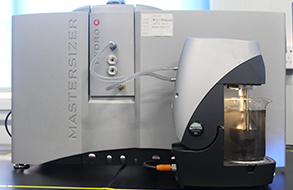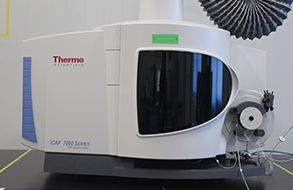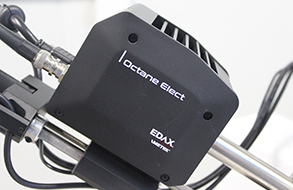Yibin Libode aims to lead the Li-ion battery cathode material market
----Interview with Zhang Zheng
President
Yibin Libode New Material Co., Ltd.
- Yibin Libode New Material Co., Ltd., founded in 2017, is a high-tech enterprise focusing on development and production of lithium-ion battery cathode material; it, along with Yibin Guangyuan Lithium Battery Material Co., Ltd, is the wholly owned subsidiary of Guangzhou Libode New Material Co., Ltd., which with registered capital of RMB0.63 billion has two major shareholders of Yibin Tianyuan Group Co., Ltd. and Guoguang Electric Company Ltd.
- Asian Metal: Mr. Zhang, thank you very much for accepting this interview from Asian Metal. Would you please give us an introduction of your company?
- Mr. Zhang: Although Yibin Libode New Material is a new company, Libode has a long history. In 2010, Guoguang Electric Company and Central South University's professor Hu Guorong cooperated to establish a research team, which then began to conduct research and development on high nickel products; in 2014, Guoguang Group and Jiangsu Guotai Group jointly established Guangzhou Libode New Material Co., Ltd., with registered capital of RMB70 million, which already had a pilot production line at that time; in 2017, the new shareholder Yibin Tianyuan Group Co., Ltd. increased its capital to Guangzhou Libode New Material and established two subsidiaries of Yibin Libode New Material Co., Ltd. and Yibin Guangyuan Lithium Battery Material Co., Ltd in Sichuan.
- We plan to construct 20,000tpy ternary material production lines and 20,000tpy NCM precursor production lines with a total investment of RMB2.5 billion. Currently, Tianyuan Group, Guoguang Electric Company and Jiangsu Guotai International Group respectively hold 49%, 47% and 2% of shares, and the remaining shares belong to the preliminary research and development team.
- Asian Metal: Downstream consumers stepped up the research and development of high-nickel ternary materials to enhance their competitiveness after China's new energy subsidies declined in June. What are the advantages and characteristics of your company in this regard?
- Mr. Zhang: As mentioned above, we already started the research and development of high nickel products in 2010 and accumulated a lot of experience in the early stage with advanced technologies. Our existing equipment is fully automatic, and only the feeding and packaging are manually operated. The advanced automatic equipment ensures the consistency of the products and provides high precision. Although we just put new production lines into operation, our products have late-developing advantages, and thus our company will soon become one of the leaders in the market.
- Asian Metal: As a new enterprise focusing on the development of high nickel cathode material, how is your company going now?
- Mr. Zhang: Our low nickel ternary materials were put into trail production in May, and then were officially put into production in June in small quantities. We plan to debug high nickel ternary material production lines late this month and expect to put the material into formal production in October.
- Asian Metal: At present, domestic high nickel ternary materials, such as NCM 811, are not applied in electric vehicles on large scale due to the safety problem, but are used in some 3C electronic products. What's your opinion about this?
- Mr. Zhang: High nickel NCM 811 and lithium manganese oxide are indeed applied into 3C electric products, but the new energy vehicle market will be the most significant growth field. In general, the standard automobile mileage should be 500 kilometers, but that for new energy vehicles is mainly about 300 kilometers at the moment. Owing to low applicability of high nickel NCM 811, it is not conductive to promoting the development of new energy vehicles and the material will be further developed for new energy vehicle market.
- Asian Metal: At present, the development of high nickel cathode materials in China is not very good. China's new energy vehicle subsidies will be completely withdrawn in 2020, what effects will be exerted on the market?
- Mr. Zhang: The declined subsidies will certainly impede the development of the new energy vehicle market, but we have to overcome them. At this moment, market players focus on how to improve energy density while increasing product safety performance.
- Asian Metal: In addition to solving the energy density problem, high nickel products also save more costs under the current situation of high cobalt price. Recently, the demand from downstream electronic market has recovered slightly, but consumers’ willingness to purchase remains low on the whole. What do you think of the future trend of battery raw materials market?
- Mr. Zhang: The supply of lithium ore is relatively sufficient; mines and lithium salt factories are constantly releasing capacities. We believe that the price of lithium ore will gradually decline.
- The supply of cobalt ore is concentrated and the total quantity is fewer than that of lithium ore. Therefore, its price is easier to be monopolized. In the short term, the price of cobalt will hold at a relatively high level due to monopoly.
- Asian Metal: In terms of your own production, does your company have any reserves for raw materials?
- Mr. Zhang: Yes, we mainly source raw materials from large enterprises to ensure the quality of products, but the specific suppliers are confidential.
- Asian Metal: Prices for lithium move down but those for cobalt go up. So what's your current production plan for NCM precursor and ternary material?
- Mr. Zhang: We expect to put NCM precursor into production in October, and then the material will be mainly used for our own ternary material production. The cost of model change of NCM precursor is relatively high as the material is synthesized through chemical process, and thus we will also consider outsourcing NCM precursor for production, and part of our products will also be sold on the market.
